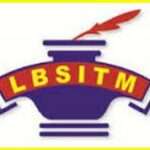The NMAT exam fee is the cost associated with registering for the NMAT by GMAC (Graduate Management Admission Council) exam, which is a popular entrance test for management programs in India. The NMAT exam fee can vary depending on factors such as the registration period and the number of business schools you choose to send your scores to. Here is an article on nmat exam fees.
Components of NMAT Exam Fee:
NMAT Registration Fee:
- The NMAT registration fee is the base fee that every candidate must pay to register for the exam.
- The registration fee is subject to change from year to year, and it typically varies based on the registration period. Early registrants often receive a lower fee compared to those who register closer to the deadline.
- As of my last knowledge update in September 2021, the registration fee for NMAT ranged from INR 2,300 to INR 2,800 for standard registration. The fee for late registration was an additional INR 500.
| NMAT Exam Fee Components | Fee (INR) | Fee (USD) |
|---|---|---|
| NMAT Registration Fee | 2300 to 2800 | 31 to 38 |
| Late Registration Fee | 500 | 7 |
| Additional Score Reports (each) | 200 per report | 3 per report |
Late Registration Fee:
- If you miss the standard registration deadline, you can still register during the late registration period, which usually extends for a few days.
- Late registration incurs an additional fee on top of the standard registration fee. This fee is typically a fixed amount and is meant to encourage candidates to register early.
Additional Score Reports:
- After taking the NMAT exam, you have the option to send your scores to multiple business schools as part of the initial registration process. However, if you wish to send your scores to more schools later, each additional score report request incurs an extra fee.
- The fee for additional score reports is typically a fixed amount per report. As of my last knowledge update, it was approximately INR 200 per report.
Important Notes Regarding NMAT Exam Fee:
- Currency Conversion: While the primary fee structure is listed in Indian Rupees (INR), the NMAT exam fee can also be paid in United States Dollars (USD), and the exact amount in USD may vary depending on the exchange rate.
- Payment Methods: NMAT exam fees can generally be paid online using various methods, including credit/debit cards, net banking, or mobile wallets.
- Fee Refunds and Cancellations: NMAT may have a refund policy in place that allows for partial or full refunds in specific cases, such as cancellations or rescheduling. The terms and conditions of these policies may vary, so it’s essential to review them before registration.
- International Test Centers: If you are an international candidate taking the NMAT exam at a test center outside India, the fee structure and payment options may differ. Always check the specific details related to international test center fees on the official NMAT website.
- Financial Assistance: Some candidates may be eligible for fee waivers or financial assistance programs. Eligibility criteria and application processes for such programs can typically be found on the official NMAT website.
- Additional Costs: While the primary focus is on the NMAT exam fee components, candidates should also consider other costs associated with taking the exam, such as travel expenses to the test center, accommodation (if applicable), and expenses related to exam preparation, such as study materials or coaching fees.
Conclusion:
The NMAT exam fee is a crucial consideration for candidates aspiring to pursue management education in India. It encompasses the registration fee, late registration fee, and fees for additional score reports. Candidates should refer to the official NMAT website or GMAC’s official communications for the most up-to-date and accurate fee information, as fees are subject to change over time. Additionally, being aware of refund policies, financial assistance options, and any associated costs is essential when planning for the NMAT exam.
NMAT Exam Fee FAQ
Start your preparation at least 3-6 months before the exam date, depending on your current level of preparation and target score.
Coaching is not mandatory but can be beneficial, especially if you need structured guidance and a competitive environment.
Taking 10-15 full-length mock tests is recommended for comprehensive preparation.










